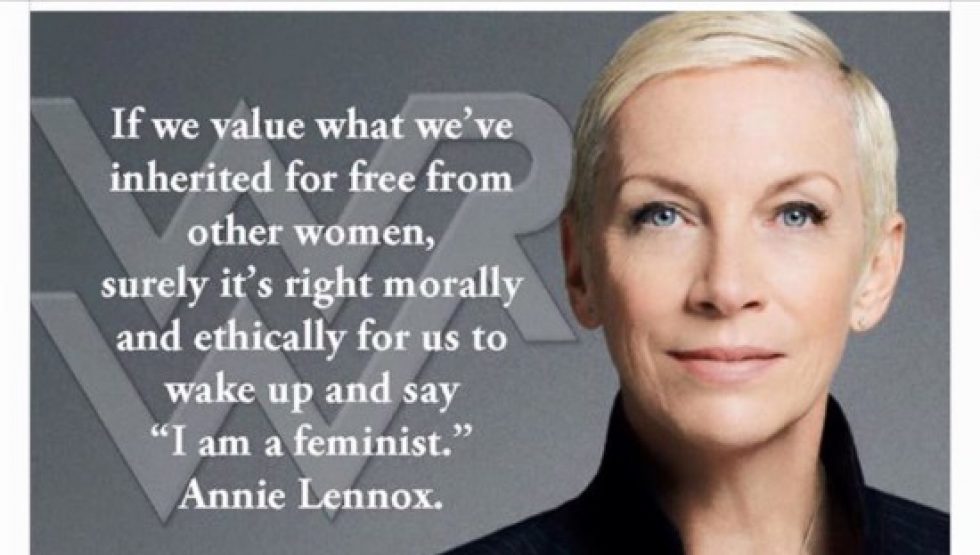We talked about how to navigate the blog, completed our work on the Butler piece, and discussed bell hooks’s “Feminist Theory–from Margins to Center.”
Second Day of Class
21
Jan

We talked about how to navigate the blog, completed our work on the Butler piece, and discussed bell hooks’s “Feminist Theory–from Margins to Center.”
ProfSi needs to never wear purple lipstick again,
Today in class I thought that the hooks’ reading really spoke to the idea of intersectionality, and why intersectional feminism is important. I found this interesting because lawyer and scholar Kimberlé Williams Crenshaw coined the term after hooks’ book was published. The need for intersectional feminism is great, and I just found it really interesting that we can put a name to the type of feminism I belive for which hooks’ is advocating. In retrospect, I think this is super cool that we can visibly see progress in the endeavor for feminism to be more accessible and inclusive.
I found the topics discussed in the assigned chapters to be quite engaging because it genuinely challenged my knowledge about feminism as a whole. Hooks’ brought to my attention the issue of class and racism within the movement in addition to the need for intersectionality. She stated that “racism abounds in the writings of white feminists, reinforcing white supremacy and negating the possibility that women will bond politically across ethnic and racial boundaries”. The movement was proving to be toxic for non-white poor women and America’s long history of white supremacy was the problem. Without acknowledging the social structure of both class and race as well as how it affects each woman differently, the movement will never truly be for all women.
We also discussed the assigned article by Judith Butler. Butler wanted us as a society to become open to the idea and concept of sexuality as a whole. She also addressed the fear that many have of introducing the difference between sex and gender in classrooms will lead to it being forced on to the students. I think this fear of homosexuality and different sexualities being ‘forced’ on heterosexuals stems from the fear of the LGBQ+ doing exactly what heterosexuals have been doing to them. However, she brings up the point that it will do the opposite. Educating the youth and people in general about the difference between the two will actually allow people a choice. She expressed that it would allow people “to find happiness and make life more bearable”. If doing something as simple as educating people about all the choices they have in terms of sexuality so that people could find some sort of happiness then it should be done.
In the Hooks reading for week one my idea of feminism was broadened because initially I thought that feminism was just the movement to make men and women equal. I have since learned that my idea of what feminism is is what bell hooks refers to as “women’s lib”, and is not an all encompassing view of what it means to be a feminist. I had reservations surrounding feminist that subscribe to the idea of one common identity, and in the reading my suspicions of people who declared all women equal in the eyes of society were confirmed to be justified. My suspicion of privileged white college educated women declaring that they to have been ignored in the same way and to the same degree as other impoverished non-white women is absurd. Feminist authors such as Betty Friedman have done a great disservice to feminist because they allowed people to be lulled into a sense of comfort. Privilege non-people of color and particular women in that category believe that because they were women their trials were the same as women who were different from them in class, race, and social standing. An idea I found intriguing is the concept of race intersecting with the feminist movement because due to non-white women seeing their men exploited and discriminated against, they view the feminist version of oppression differently. Many men will admit that women are a disenfranchised group, but unless many men are willing to say that they are privileged there will be no difference in the social status between men and women.
After reading the chapters from hooks a couple things became very apparent to me. One of the things that was apparent to me was feminism was not started by the people that I once thought it to. The movement ignored the problems of most non white poorer women and was instead driven by white upper middle class women. Hooks also wrote about how oppression wasn’t equal. She spoke how women had choices so they were not technically oppressed. She also told us about how many minority women weren’t on board with the feminist movement because of the type of people driving it. It was hard for the women to agree with the feminism movement because it didn’t speak on the problems of all women. It’s crazy to think that the average educated white women could go through the same problems as a poor non white women and this was some of the early problems people had with the movement. How are we going to acknowledge one subcategories problems and say we are doing a good job understanding them and moving toward change when it’s not the change that all of the recipients want or need.